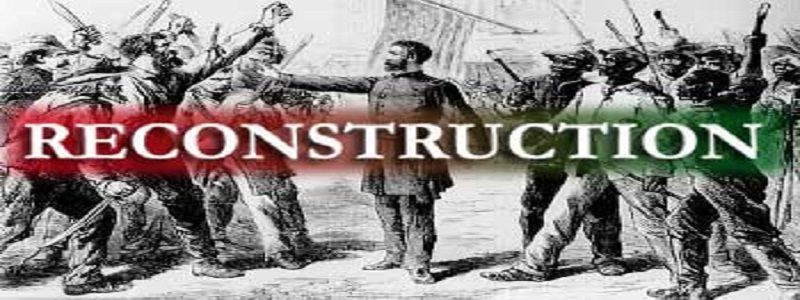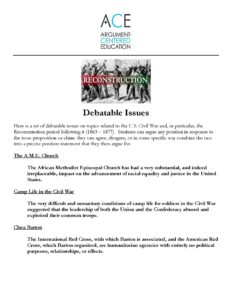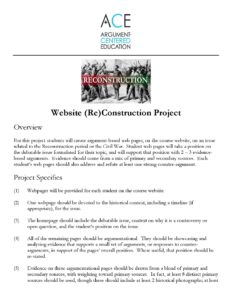
Website (Re)Construction Project
One of Argument-Centered Education’s partner schools is implementing a highly innovative piece of curriculum in its U.S. History classes.
Called the Website (Re)Construction Project, it has students create argument-based web pages, on the course’s website, about an issue related to the Reconstruction period or the Civil War. Student web pages take a position on the debatable issue formulated specifically for the topic that they choose (or students can formulate, for instructor approval, their own commensurate debatable issue). Their designed webpages support that position with 2 – 4 evidence-based arguments. Evidence is required to come from a blend of primary and secondary sources, with weighting going to the primary. Each student’s webpages must also address and refute at least one strong counter-argument. Students are encouraged to use historical photographs, newspaper and personal accounts of the period, and other artifacts to create a visual theme on their webpages, one that “rhymes with” their argumentative position.
We developed original debatable issues on 27 different topics pertaining to Reconstruction and the Civil War. “Topics” include a number of the most influential and important personages of the period.
 Here is a representative sample of the carefully formulated issues:
Here is a representative sample of the carefully formulated issues:
Black Codes
Because of the widespread adoption by state governments of Black Codes during Reconstruction, the social and political condition of African-Americans was not significantly better in this period than it had been before the Civil War.
Henry Clay
Known as “The Great Compromiser,” Henry Clay’s career in national politics demonstrates in the best way that “politics is the art of the possible,” and that political compromise has great importance and value.
Dorothea Dix
Though Dorothea Dix had important achievements in providing hospital services for Civil War soldiers and in improving prison conditions before and after the Civil War, her greatest and most lasting achievement was in creating new norms and procedures for treating the mentally ill in the U.S.
Frederick Douglas
Frederick Douglas was to Abolitionism what Martin Luther King was to the Civil Rights Movement.
The Website (Re)Construction Project overview includes 10 numbered “project specifics.”
 As this curricular collaboration shows, academic argumentation in a history course can be produced and delivered in many engaging formats, incorporated into inherently engaging and tech-forward media as naturally as more traditional essays and organizers.
As this curricular collaboration shows, academic argumentation in a history course can be produced and delivered in many engaging formats, incorporated into inherently engaging and tech-forward media as naturally as more traditional essays and organizers.

